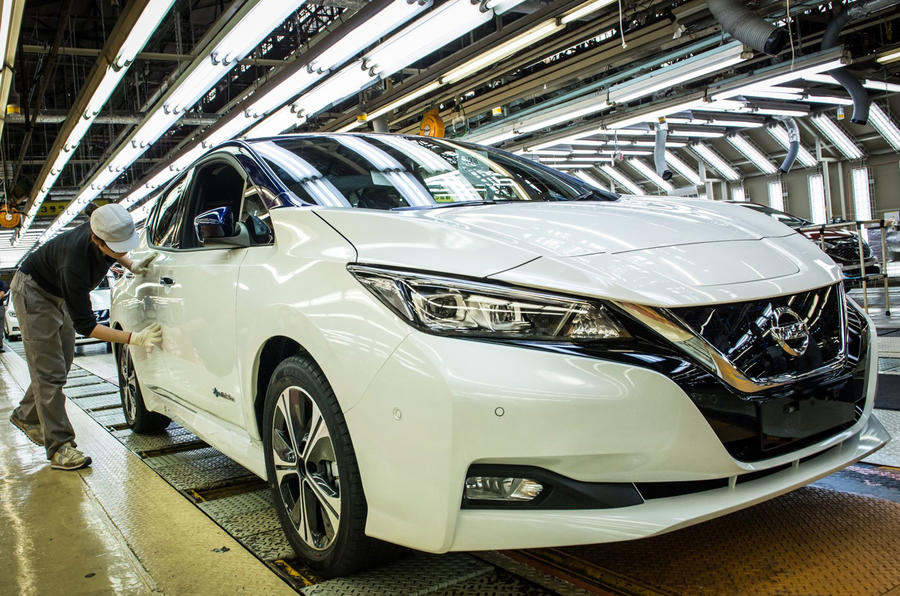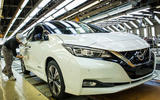The next-generation Nissan Leaf will go into production at the end of 2017 at plants in Japan, the UK and the US, the brand has confirmed.
Nissan’s Oppama plant in Japan, the Sunderland plant in the North-East of England and the Smyrna plant in Texas will handle the manufacturing of the new model, which will be built on a heavily evolved electric platform.
Sunderland is one of the UK's biggest car producers, having built more than half a million cars in 2016. Its biggest product is the Nissan Qashqai.
Autocar has driven a Japan-spec prototype of the second Leaf, but British cars will get bespoke settings to cater to the unique and potted roads here. The car will also be adapted for other markets.

Sales will kick off in Japan on 2 October, with order books in other markets, including Europe, opening soon after.
Nissan manufacturing and supply chain boss Fumiaki Matsumoto said: “The Nissan Leaf is the icon of Nissan Intelligent Mobility, with its many advanced technologies. Nissan employees in Oppama, Smyrna and Sunderland are excited to continue producing the most popular electric vehicle in the world.”
The first-generation Nissan Leaf is the most heavily demanded electric car in existence, with 283,000 units having been built – around 40,000 more than the entire Tesla range so far.
Nissan expects demand to grow with the introduction of the new Leaf, due to its vastly improved performance and less divisive design. But trends suggest its place as the most-demanded electric vehicle may be diminished by the Tesla Model 3, which has been ordered around 400,000 times.








Join the debate
Add your comment
Smyrna Location
The Smyrna VAP is located in Tennessee, not Texas.
pie in the sky
It's more than infrastructure, it's slow, inefficient (around 23mpg), expensive to make the car, expensive to produce hydrogen (1kg needs 30kwh), expensive to transport etc
!
The universities have been working with manufacturers in fuel cells for at least fifteen years. That motive drive will be the future. The farmers are already looking at making hydrogen on-site for fuel cell tractors etc.
I know the infrastructure argument against hyrdrogen, but that seems dwarved by the requirements of battery power charging points across europe. Car firms are run by accountants who can only think and work in the sort term hence the rush to battery power - a realtively cheap and easy fix to reach new legislative targets but probably not the long-term answer
!
The universities have been working with manufacturers in fuel cells for at least fifteen years. That motive drive will be the future. The farmers are already looking at making hydrogen on-site for fuel cell tractors etc.
I know the infrastructure argument against hyrdrogen, but that seems dwarved by the requirements of battery power charging points across europe. Car firms are run by accountants who can only think and work in the sort term hence the rush to battery power - a realtively cheap and easy fix to reach new legislative targets but probably not the long-term answer